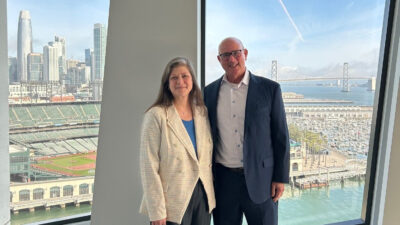Council Applauds Federal Bill that Aims to Eliminate Parking Requirements Near Transit
If a bill drops in Congress during debt ceiling negotiations with the fate of the world economy in the balance, does it make a sound? In the case of Congressman Robert Garcia’s ambitious H.R. 3145, the “People Over Parking Act,” you better believe it does.
The freshman member from California’s 42nd Congressional district — and former mayor of Long Beach — introduced his bill this week to jumpstart desperately needed housing construction by clearing away minimum parking requirements for new affordable residential, retail, industrial or commercial construction near transit corridors. Modeled after one of the Bay Area Council’s signature state legislative victories in 2022, the People Over Parking Act represents a bold and sorely needed effort to simultaneously address our housing affordability and climate crises, while modernizing antiquated regulations that have exacerbated both.
“Requiring expensive parking construction near transit is a mistake,” said Bay Area Council President and CEO Jim Wunderman. “Studies routinely show that parking minimums are not set scientifically and often lead to vast, unused parking facilities. These requirements make housing more expensive, take away space for businesses, and detract from the walkable desirability that make main streets such an important part of our economy. These requirements can add up to $80,000 to the cost of a home, keeping rent unaffordable and homeownership out of reach. We applaud Congressman Garcia for his work to align our transportation, housing, economic development, and climate goals around a framework of allowing people to choose how much parking they should build, rather than depend on arbitrary and expensive local requirements.”
We thank Representative Garcia for bringing this forward-thinking policy proposal to Washington, and for his recognition of the Council as an early supporter of the bill. We are similarly grateful to Bay Area Representatives Mark DeSaulnier and Kevin Mullin, who both signed on to immediately cosponsor the legislation.





